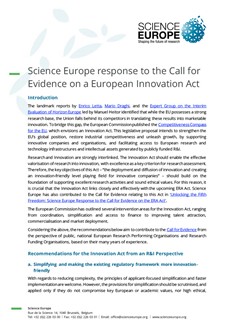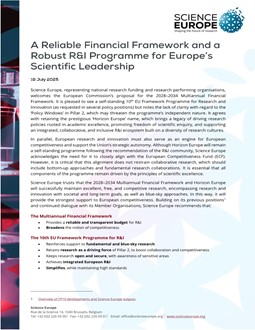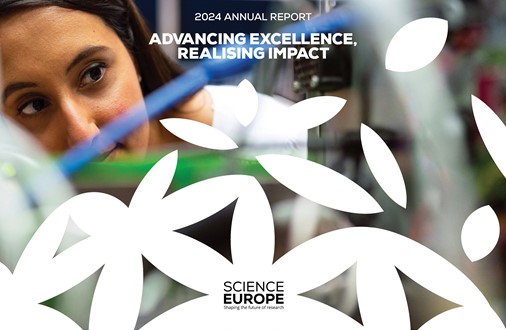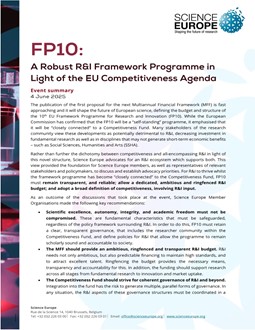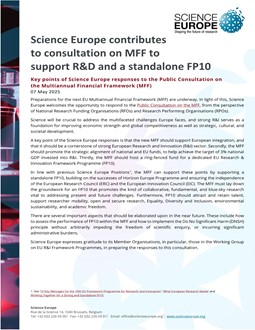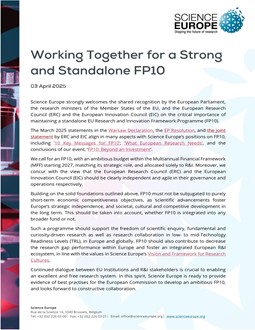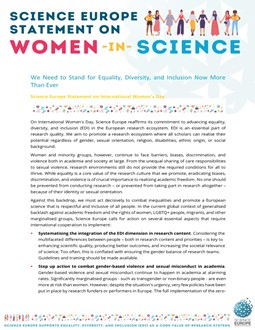
-
Share on
Ensuring Collaboration with Non-EU Countries to Build Stronger European Research and Innovation
Science Europe's Statement on the Participation of Associated Countries in Horizon Europe’s Pillar II
Horizon Europe is a key programme to develop the global competitiveness of European Research and Innovation (R&I) in key strategic sectors. Science Europe supports the intention of the EU to build independent capacities in these sectors, including in quantum R&I and space. To reach this goal, collaboration with the EU’s closest geographical partners, that share common European objectives, is essential and must be protected.
The restrictions on the participation in Horizon Europe, including in Pillar II Cluster 4 ‘Digital, Industry and Space’, should be limited to reflect the collaboration agreements and common interests with the EFTA countries that are members of the European Economic Area (EFTA-EEA i.e., Norway, Iceland, and Liechtenstein), Switzerland, and the United Kingdom.
The development of capacities and competitiveness in digital and other emerging technologies, such as quantum, requires a critical mass of research activity, including fundamental research, and innovation. The global quantum race has recently intensified, and Europe has shown its ambition to be a global player, notably by launching the Quantum Flagship under Horizon 2020. Only by pooling financial resources and the best expertise, will Europe succeed in competing with the United States and China.
Collaboration in the space sector has always transcended EU borders. Switzerland and the UK are, for instance, among the founding members of the European Space Agency and they contribute to the competitiveness of Europe in the space landscape. Such a European advantage must be protected as new powers in space technology emerge.
Strong networks have been built over the years with the research communities in Associated Countries in strategic areas. Restrictions in Pillar II‘s eligibility criteria would disrupt current essential collaborations and could weaken future consortia and projects.
Moreover, the rationale behind any decisions on eligibility rules in specific calls should be transparent and openly communicated to protect Horizon Europe’s global attractiveness.
Science Europe strongly believes that the benefits of collaboration outweigh the risks identified regarding EU’s strategic independence. As such consortia that contribute to the EU’s R&I agenda should be open to participants from the EU’s closest partners alongside EU and EFTA-EEA partners.








